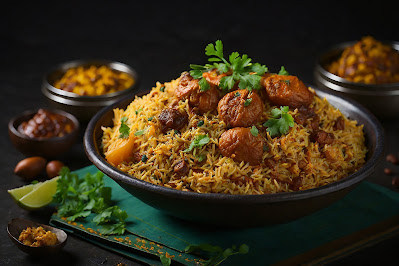Paneer Biryani: The Ultimate Recipe and Cooking Guide


Diabetes is a chronic condition that affects millions of people worldwide. Managing diabetes effectively involves various aspects, with diet playing a crucial role. This comprehensive guide will delve into the world of diabetes care through diet, outlining what to consume and what to avoid.
Chapter 1: Understanding Diabetes
Before we dive into dietary recommendations, it's essential to understand the basics of diabetes. Diabetes is a condition characterized by high blood sugar levels, primarily due to the body's inability to produce or use insulin effectively. There are two main types: Type 1 diabetes, an autoimmune condition, and Type 2 diabetes, often associated with lifestyle factors.
Chapter 2: The Power of a Balanced Diet
A balanced diet is the cornerstone of diabetes management. Your plate should ideally consist of:
Complex Carbohydrates: Opt for whole grains like brown rice, quinoa, and whole wheat bread. These release glucose gradually, preventing sudden spikes in blood sugar.
Lean Proteins: Include sources like skinless poultry, fish, tofu, and legumes. Protein helps maintain stable blood sugar levels.
Healthy Fats: Incorporate unsaturated fats from sources like avocados, nuts, and olive oil. They aid in insulin sensitivity.
Fiber-Rich Foods: Vegetables, fruits, and legumes are rich in fiber, which can help regulate blood sugar.
Chapter 3: Foods to Embrace
Certain foods can be particularly beneficial for individuals with diabetes:
Leafy Greens: Spinach, kale, and collard greens are packed with vitamins and minerals, aiding in overall health.
Berries: Blueberries, strawberries, and raspberries are low in sugar and high in antioxidants.
Fish: Fatty fish like salmon and mackerel are excellent sources of omega-3 fatty acids.
Nuts and Seeds: Almonds, chia seeds, and flaxseeds provide healthy fats and fiber.
Chapter 4: Foods to Limit or Avoid
To maintain stable blood sugar levels, it's crucial to limit or avoid certain foods:
Sugary Drinks: Soda, fruit juices, and sweetened beverages can cause rapid blood sugar spikes.
Processed Foods: Highly processed items are often high in unhealthy fats, sugars, and sodium.
Trans Fats: Found in many fried and commercially baked goods, trans fats can worsen insulin resistance.
Highly Refined Carbohydrates: White bread, sugary cereals, and pastries can lead to blood sugar spikes.
Chapter 5: Meal Planning and Portion Control
Balancing meals and controlling portions are vital for diabetes management:
Carb Counting: Learn to count carbohydrates and distribute them evenly throughout the day.
Glycemic Index: Be aware of the glycemic index of foods; opt for low GI options to prevent blood sugar spikes.
Meal Timing: Regular meal times can help stabilize blood sugar levels.
Chapter 6: Consult a Registered Dietitian
Individualized advice is key to effective diabetes management. Consult a registered dietitian who can create a tailored meal plan based on your specific needs and preferences.
Conclusion
Diabetes care through diet is a powerful tool in managing this chronic condition. By embracing a balanced diet, making informed food choices, and consulting with healthcare professionals, individuals with diabetes can lead healthier, more fulfilling lives.
Enjoy! ❤️
Comments
Post a Comment